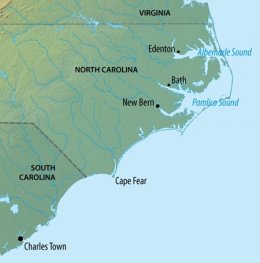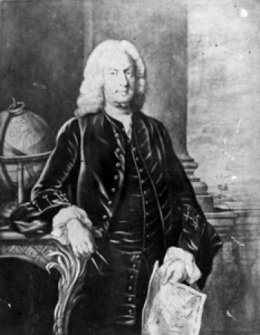
 The story of Carolina’s first fifty many years is regarded as turmoil — political dispute, corrupt officials, delinquent fees, inexperienced proprietors, available rebellion, angry Indians, and rapacious pirates. But at exactly the same time, the colonists were building a fresh culture across the coastline, with facilities, towns, and quietly functioning local government. In 1729, North Carolina was taken over because of the master, the turmoil quieted down, and also for the next few decades, colonists enjoyed relative peace and stability.
The story of Carolina’s first fifty many years is regarded as turmoil — political dispute, corrupt officials, delinquent fees, inexperienced proprietors, available rebellion, angry Indians, and rapacious pirates. But at exactly the same time, the colonists were building a fresh culture across the coastline, with facilities, towns, and quietly functioning local government. In 1729, North Carolina was taken over because of the master, the turmoil quieted down, and also for the next few decades, colonists enjoyed relative peace and stability.
Two Carolinas
Considering that the 1660s, the Proprietors had acknowledged this 1 governor and one system couldn’t manage a colony as huge as Carolina — perhaps not once the settlements at Albemarle, Cape anxiety, and Charles Town were up to now aside and transportation up and down the coastline had been so very hard. In 1691, the Proprietors appointed a governor for all of Carolina and a deputy governor for its north one half, and also this arrangement supplied better administration. In 1712, North and South Carolina had been formally split.
 The English federal government, though, had been unsatisfied along with its proprietary colonies. King and Parliament desired fees gathered, colonists defended, and purchase maintained — equally many residents of new york performed — as well as performedn’t believe the many proprietors had been managing their colonies properly. In 1719, South Carolina, which had more sources than North Carolina and had been for that reason more valuable to The united kingdomt, had been taken right back from the Proprietors making a royal colony. While a proprietary colony was ruled by proprietors or owners within the king’s location, a royal colony had been ruled straight by the master. The master, or their officials, appointed the colony’s governor together with the ability to approve (or disapprove) its laws and regulations.
The English federal government, though, had been unsatisfied along with its proprietary colonies. King and Parliament desired fees gathered, colonists defended, and purchase maintained — equally many residents of new york performed — as well as performedn’t believe the many proprietors had been managing their colonies properly. In 1719, South Carolina, which had more sources than North Carolina and had been for that reason more valuable to The united kingdomt, had been taken right back from the Proprietors making a royal colony. While a proprietary colony was ruled by proprietors or owners within the king’s location, a royal colony had been ruled straight by the master. The master, or their officials, appointed the colony’s governor together with the ability to approve (or disapprove) its laws and regulations.









